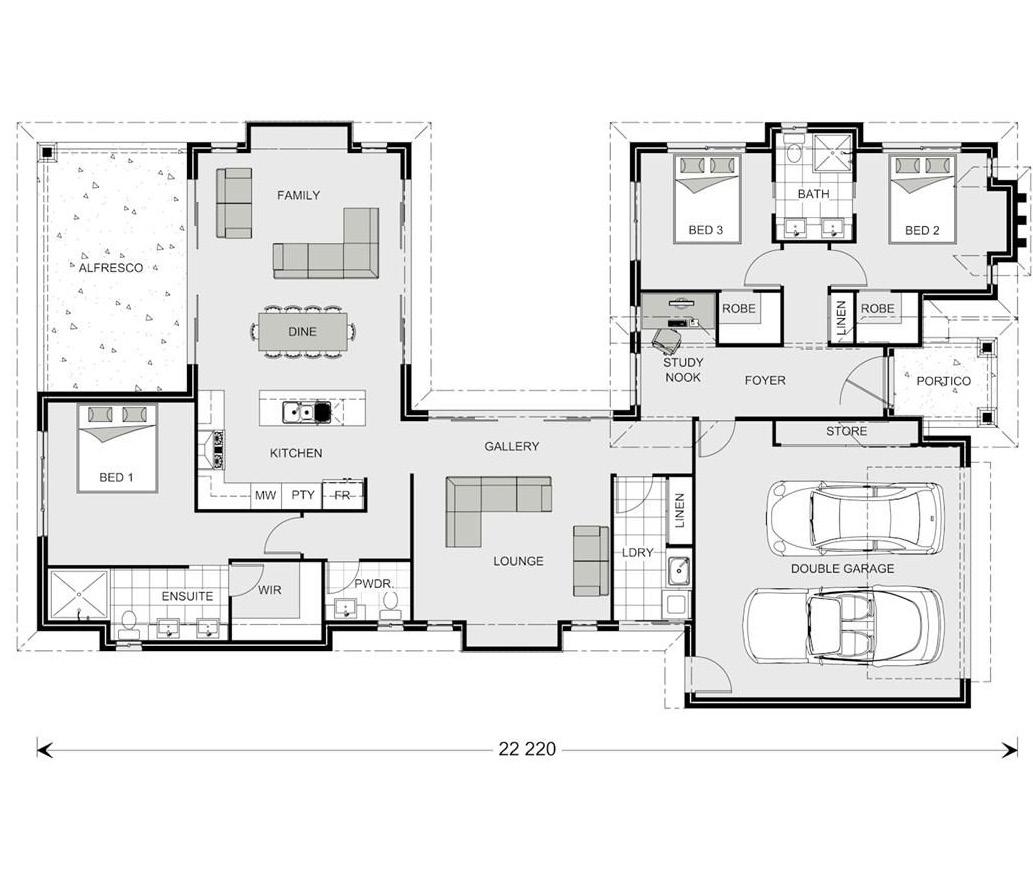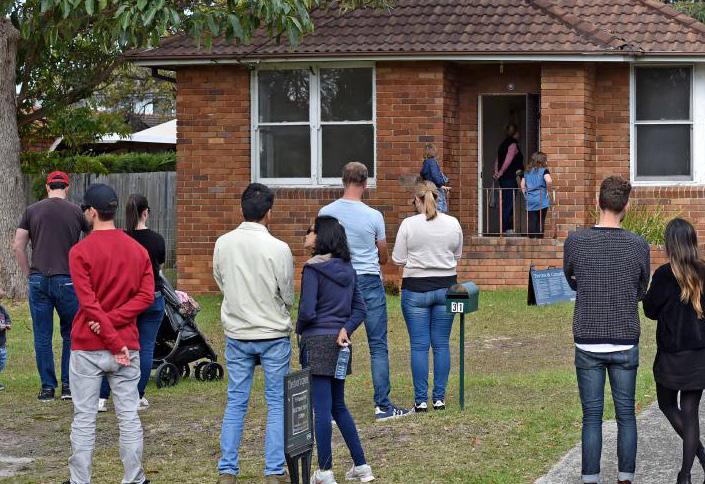
17 minute read
Housing and Construction


Advertisement


ORGANISATION
DELEGATION CONTACT
DELEGATES ATTENDING
DELEGATE ISSUES
WEBSITE LINKS
ATTACHMENTS Cairns TNQ Convoy to CapitalQ
Advance Cairns, Tourism Tropical North Queensland and Cairns Chamber of Commerce are leading the region’s largest ever business delegation to Brisbane. The delegation includes more than 50 business leaders over a two-day period (February 18-19), representing 12 key business sectors to meet with State MPs and attend the Speaker’s Cocktail Reception.
Further information: Nick Trompf, Executive Chairman Advance Cairns E: nicktrompf@advancecairns.com | M: 0412 786 719
Housing and Construction:
Ranjit Singh
1. Ranjit Singh, President UDIA FNQ & Partner Holding Redlich Lawyers 2. Donna-Maree O’Connor, CEO Access Community Housing Company 3. Ian Roberts, CEO Anglicare North Queensland 4. Sarah Mort, Director MiHaven
Attached are bios on each delegate.
Housing and Construction issues to discuss:
• First Home Owners Grant and Stamp Duty • Social Housing • Crisis Accommodation Service Expansion
Attached are briefing papers on each issue.
• Attendee biographies • Briefing papers
Ranjit Singh is a born and bred Cairns Local.
He has been a practising property and development lawyer for the last 17 years and has advised stakeholders in relation to a number of marquee projects in the region since that time.

In recent years, Ranjit merged his boutique law firm with national commercial law firm Holding Redlich and is part of a team of 18 in the Cairns office.
Ranjit is extremely passionate about providing employment opportunities for local law graduates to prevent the “brain drain” of talent away from the region.
Ranjit is the President of the Far North Queensland Chapter of the Urban Development Institute of Australia (UDIA). He is also a member of the Queensland Government’s recently announced Regional Forums.
Donna-Maree O’Connor is the CEO of Access Community Housing Company (ACHC), a Tier 2 registered housing provider with a portfolio of approximately 600 dwellings. ACHC is the largest Community Housing Company in North Queensland. This year will see the completion of the construction of the first unit development by the company. Hopefully, the first of many.

Donna-Maree is the Chair of the Cairns Housing and Homelessness Network and a director on the board of Community Housing Industry Association Qld (CHIA). She has lived in Cairns for 22 years and been at ACHC for over 5 years.
Over the past Donna-Maree has worked in a range of government departments, including the Department of Education, Training, DATSIP, Qld Health, Local Government and prior to coming to Cairns the Department of Justice and Attorney General, where she was responsible for establishing a state-wide Victim Support Service within the Prosecutions office. She has also worked in the area of Domestic and Family Violence and is passionate about the need for safe, affordable housing for all.
Donna-Maree holds a Bachelor of Arts/Economics, a Diploma of Education, a Diploma of Management and a Masters of Gender Studies. She is committed to finding a dignified housing solution for the most vulnerable people in our community.
IAN RO BERTS CEO ANGLICARE NORTH QUEENSLAND
Ian Roberts has over 30 years experience, both commercial and not for profit, of the challenges and opportunities facing modern day not for profits. Through capacity building, Ian has developed community based services in some of the most disadvantaged and marginalised areas, delivering socially sustainable outcomes in these communities both in Australia and the UK.

Over the last 8 years as Chief Executive of Anglicare North Queensland Ian has focussed on social and economic development in the North and Far North region. Ian is a strong advocate against Poverty and Homelessness, and in recent years acted as State Co-Chair Queensland for the National Anti-Poverty Week campaign in our region.
Ian has engaged in urban regeneration programmes in the North of England supporting those marginalised through community master planning, developing social enterprises and neighbourhood renewal. Previous Senior Executive and Board roles have included Relationships Australia WA, Diocese of Norfolk and Diocese of Bradford and the National Trust.
SARAH MORT DIRECTOR MIHAVEN
Sarah Mort has over 30 years’ experience in the property development industry having worked with some of Australia and Asia’s leading property development and construction companies including Harilela’s Hotels (owners of the former W Hotel Sydney); Multiplex Constructions and the Kuok Group, Malaysia/Hong Kong.

Sarah, with her husband James Mort, is currently Co-Owner and Director of MiHaven, specialising in construction and property development, MiHaven training (RTO 40928) and MiHaven Student Living (accommodation) based in Cairns. Her core business strengths and successes draw from her wide and diverse experiences and background.
Sarah’s career spans 30 years in town planning and property development, having previously lived and worked in two major Australian capital cities (Melbourne and Sydney) working for large property based Asian companies (in Singapore; Malaysia and Hong Kong). This vast experience has allowed Sarah to utilise her many skills and talent in town planning; community consultation and project management.
Sarah’s experience has been greatly enhanced by the diverse forms of business she has been involved in, including local government; environmental planning, property development and construction.
COUNCIL: ALL TNQ STATE ELECTORATE: ALL TNQ FEDERAL ELECTORATES: LEICHHARDT, KENNEDY INDUSTRY DEVELOPMENT
FIRST HOMEOWNERS GRANT AND TRANSFER DUTY SUBSIDY
BRIEFING NOTE SUMMARY
• First home buyers account for 45% of new home purchases in Cairns – three times the ratio in south east Queensland.
• To stimulate the regional property market and increase availability of private rental properties, a $5000 increase in the first home owners’ grant is needed for buyers of new build homes in Tropical North Queensland.
• To increase demand for housing stock, encourage further supply and encourage investors to prioritise regional areas, stamp duty concessions are needed for purchasers of investment property in Tropical North Queensland.

THE ISSUE The Cairns property market has seen a dramatic decline in the construction of new dwellings with building approvals currently running at 40% of the last 20-year average. On the apartment front, sales of new units have collapsed from a peak of 1039 in 2004 to just 26 in 2018-2019. With the significant lack of new residential housing and apartment developments, rents are escalating year-inyear-out in a stressed market with a vacancy rate of just 1.7%. Added to ongoing concerns in the residential construction sector is the fact that three marquee hotel projects have now been completed, meaning there is limited demand for local builders and tradespeople. At just under 11% of total workforce in the region, the building and construction sector is the second largest in job creator in the TNQ region behind health and allied industries.
BACKGROUND The first home owners’ grant is extremely important to the local home building markets in regional areas such as Cairns. Government data shows around 45% (222 homes) of the 522 house building approvals in Cairns in 2018-2019 were from first home owner grant applicants. This is a much higher ratio than south east Queensland, which sits at approximately 15% of house building approvals. Incentives such as the first home owners’ grant are a proven initiative to assist Queenslanders enter into the property market. When a $20,000 grant existed previously, Queensland first-home buyer loan approvals soared by nearly 20% during the first 12 months of the grant, making the sunshine state Australia’s first-home buyer capital in 2017. The first home owners’ grant has a proven ability to stimulate the marketplace by shortening the time that it takes to save for a deposit and/or enable home buyers to increase their deposit, consequently increasing their
borrowing capacity. A range of grants have been offered at different times, both at state and federal levels generally to stimulate construction and/or home ownership. Owner-occupiers currently get a stamp duty concession from the Queensland Government (typically around $7000) when they buy a new home in which to live. Extending this concession to investors who buy in regional Queensland only would stimulate significant activity and encourage further supply of stock to come into the marketplace for rental purposes.
NEXT STEPS To stimulate the regional property market, two State Government initiatives are needed: 1. an increase in the first home owners grant from $15,000 to $20,000 for first home buyers of new homes in TNQ; and 2. apply the owner-occupier rate of stamp duty to investment property purchased in regional Queensland.

These measures will assist the housing and construction sector in regional Queensland by: • attracting first home buyers into the TNQ property market; • increasing the availability of rental properties and addressing the shortage of rental properties in TNQ by transitioning long term renters into home owners; and • incentivising the construction of new housing, which will create work for the many local contractors, sub-contractors, tradespeople and suppliers who rely on the building industry. It is recommended the above incentives be provided for an initial period of 12 months, which will bring forward demand by stimulating the first-home buyer market and creating urgency in the investor marketplace.
OUR RECOMMENDATION
• That in 2020-2021 the State Government increase the first home owners’ grant from $15,000 to $20,000 for buyers of new homes in TNQ.
• That stamp duty rates on investment property purchases in TNQ in 2020-21 be charged at the owner occupier concessional rates for the next 12 months.
Sources: 1. Herron Todd White Cairns Property Watch, November 2019 2. Queensland First Home Owner Grant data by Statistical Area 2018-19 3. Domain News 4. Queensland Productivity report
COUNCIL: CAIRNS STATE ELECTORATE: CAIRNS FEDERAL ELECTORATES: LEICHHARDT SOCIAL INFRASTRUCTURE
SOCIAL HOUSING
BRIEFING NOTE SUMMARY
• Low income earners are facing two significant barriers in Cairns when it comes to securing housing: (1) affordability; and (2) availability.
• Demand for social housing far exceeds supply, with more than 2000 people on the waiting list.

• The problem has been exacerbated recently with allocations from the waiting list put on hold because of a significant number of people displaced from Aurukun needing crisis accommodation.
• The Australian Institute of Health and Welfare’s most recent data identified Cairns as having more than 3975 people homeless or at severe risk of homelessness.
• There is a pressing need to grow the stock of affordable and community housing in Cairns, which has stressed rental market conditions caused by low levels of housing construction and continued population growth.
THE ISSUE There are two major issues facing low income earners in Cairns: (1) affordability; and (2) availability of housing. The demand for social housing currently exceeds supply and this mismatch is impacting on the entire housing and homelessness sector in Cairns. As at September 2019, the current Register of Need (waiting list managed by the Department of Housing and Public Works) for social housing in Cairns was at 2017 applicants, which comes after five years of continuous growth. Adding to the pressure, allocations from the waiting list have recently been put on hold due to a significant number of displaced people coming from Aurukun needing crisis accommodation. There is also broad agreement within the housing and homelessness sector that the complexity of clients has increased with high levels of mental health problems, alcohol and drug dependency, domestic and family violence, criminal histories and extreme poverty. Since the global financial crisis, Cairns has seen the demise of many key building companies and a slump in residential construction with current building approvals at 40% of the 20-year average. This comes
2020 STATE ELECTION PRIORITIES FOR TNQ despite residential rental vacancy rates bordering on stressed at 1.7%. The demand for social housing is set to rise further in 2020 given the unemployment rate in Cairns has risen markedly in recent months to be above the state average at 6.2%.
BACKGROUND Local real estate agents are reporting far more demand for rental properties than properties available and are reporting an increase in rents. Many Centrelink recipients, large families, Indigenous people and people with no or a poor rental history are excluded from renting because of this shortage and the increasing rents. Growth in construction in Cairns has been predominately in the tourism sector and only in the last 1-2 years. The Australian Institute of Health and Welfare’s most recent data identified Cairns as having more than 3975 people homeless or at severe risk of homelessness. Domestic and family violence figures have increased and are one of the highest rates in the state. The 2016 census data identified 1334 people with no place to call home and another 2811 living in caravans, tents or sleeping out.
While First Nations people account for 2.8% of the Australian population, they make up 10% of the population of Cairns and they are overrepresented in social housing and homeless figures. Community Housing clients reflect this with 68% identifying as having Aboriginal and/or Torres Strait Islander backgrounds.
NEXT STEPS We acknowledge the State Government’s Partnering for Growth and Partnering for Impact initiatives that aim to stimulate housing growth across the state and support people living in social housing. One of the benefits for tenants of community housing and for people on low-to-moderate incomes is their access to Commonwealth Rent Assistance. However, there is a need to grow the stock of affordable and community housing in Cairns to respond to the increasing need. Community Housing in Cairns represents only around 600 properties under management, meaning there are very low levels of affordable housing for residents at risk of homelessness. To achieve a well-functioning housing market in Cairns, significant housing development needs to occur. This could occur via: • the State Government releasing land at no cost or below market value to the building and development sector, as well

as Community Housing providers and the not-for-profit sector to undertake affordable housing developments; • State Government equity investment in delivering feasible projects that will create developments, employment and increases in affordable and accessible housing projects. This could be a voluntary incentive model where new affordable housing is encouraged by reducing costs for developers; • the introduction of ‘gap funding’ to cover operational losses when Community Housing providers borrow private finance to build affordable and social housing. This would equate to the revenue gap between the cost of finance and building and the revenue return from sub-market rents; and • the State Government subsidising or incentivising companies to deliver projects that will result in new construction, generate employment, and increase the affordable and accessible housing stock in Cairns. This could be done by reducing costs or reforming tax incentives, providing funding to support the financial and social sustainability of Community housing and/ or increasing the Community Rent Scheme quotas to close the gap between market rent and affordable rent.
OUR RECOMMENDATION
That the State Government stimulate growth of affordable housing in TNQ through the following:
• releasing land at no cost or below market value to the building & development sector and Community Housing providers to undertake affordable housing developments; and
• subsidising or incentivising companies to deliver projects that will result in new construction, generate employment, and increase the affordable and accessible housing stock in Cairns.
COUNCIL: CAIRNS STATE ELECTORATE: CAIRNS FEDERAL ELECTORATES: LEICHHARDT SOCIAL INFRASTRUCTURE
CRISIS ACCOMMODATION SERVICE EXPANSION
BRIEFING NOTE SUMMARY
• Cairns has long battled the issue of homelessness, but the complexities have recently become vastly accentuated by public intoxication and substance misuse.
• Concerns around antisocial behaviour led to the creation of an industry-led Project Control Group (PCG) that aims to identify service gaps and provide strategic direction to the Cairns Homelessness and Public Intoxication Taskforce.
• While Cairns has an effective rough sleeping case management framework in place, the PCG identified that the Quigley Street Night Shelter and Lyons Street Diversionary Centre (both frontline response facilities) require significant infrastructure upgrades and greater case management resources.

THE ISSUE Cairns has long wrestled with the issue of homelessness in the community. However, the complexities of primary homelessness in Tropical North Queensland (TNQ) have recently become accentuated in relation to public intoxication and substance misuse. Over the last 10 years there have been a number of targeted responses to homelessness in Cairns, leading to a significant reduction in rough sleeping in the Cairns CBD and surrounds. But the increasing public intoxication problem is causing considerable disruption to business and the public more broadly. In 2017, the growing concerns around antisocial behaviour associated with rough sleepers and public intoxication led to the creation of a senior level Project Control Group (PCG) which aims to address the following priorities: 1. reduction of people causing issues in the Cairns CBD and surrounds; and 2. service gap identification and elevation. The PCG provides strategic direction to the Cairns Homelessness and Public Intoxication Taskforce which was established in 2007. Its membership includes all the key agencies
2020 STATE ELECTION PRIORITIES FOR TNQ working together to improve services to people who are homeless and or intoxicated in public in the Cairns CBD and surrounds. An options paper titled “Public Space Issues in Cairns” has been provided by the PCG outlining key proposals in addressing rough sleeping.
BACKGROUND Quigley Street is a 40-bed crisis accommodation service for men and women living rough, usually itinerant and lacking the basic physical and emotional resources to sustain housing. Quigley Street has been operational since 1999 and the service model lends itself to group accommodation. The current building structure of Quigley Street is dormitory style and is an outdated model that does not meet the individual needs of clients; nor does it allow clients appropriate dignity, confidentiality and rights due to being open rooms with little privacy. The Cairns Diversionary Centre is a 36-bed sobering-up facility for intoxicated individuals who are at risk of being a danger to themselves or others, are causing a public nuisance, or who would otherwise be detained at the Cairns watch house. The diversionary centre has
been operational since 1995 and recent calls to extend the number of beds at the centre reflect the impact that chronic intoxicated itinerants have on the Cairns CBD, leading to the need for greater resourcing to facilitate intensive case management at the centre. Both the night shelter and diversionary centre provide immediate accommodation support but neither are funded for ongoing case management support. Due to the crisis nature of these clients and a lifestyle of living rough, many individuals present without relevant identification, experiencing significant grief and loss (including dislocation of culture) and subsequent mental and physical health issues, as well as often chronic substance misuse problems. These clients are often difficult to house anywhere else and without intensive case management support, will continue to cycle through emergency accommodation services and fail to demonstrate any significant lifestyle change.
NEXT STEPS Acknowledging that Cairns has an effective rough sleeping case management framework in place, various elements of the service system need support to enhance integrity.

The Quigley Street Night Shelter and Lyons Street Diversionary Centre are both frontline response facilities for public space intoxicated itinerants and chronic rough sleeper issues in Cairns, and both centres require significant infrastructure upgrades and resources for intensive case management. A number of solutions are therefore recommended for action: 1. expand the bed capacity of the Cairns Diversionary Centre to reduce the number of intoxicated persons sleeping in public places or at the Police watch house. The expansion will also reduce the involvement of rough sleepers in antisocial or unsafe behaviours. 2. invest in unit style accommodation to replace dormitory accommodation at the Quigley Street Night Shelter, enhancing dignity and enabling the development of individual living skills; and 3. implement intensive case management support for both centres, which will aid in reducing the cyclic nature of residents moving through the facilities.
OUR RECOMMENDATION
• That the State Government support the work of the Cairns Homelessness and Public Intoxication Taskforce by: (1) investing $3 million in expanded bed capacity at the Cairns Diversionary Centre; and (2) replacing current dormitory-style accommodation at Quigley Street Night Shelter with units.









